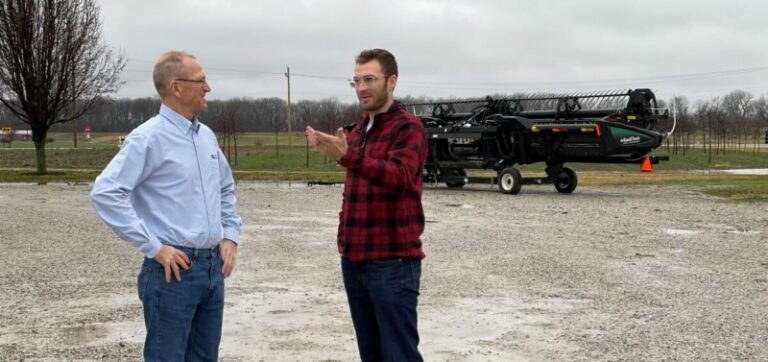Don’t get caught in them any longer
We have all been there. Often, we may even be the cause of them. Whoever caused them, it doesn’t matter now. You are on the sales call, the conversation topic is one of those dead-end topics, and now you are stuck in it. On and on it goes, leading to nowhere with no way out. The end result…..no change, no sale, and worse, no closer to getting a sale.
Here are just a few topics that fit this category and get salespeople headed in the wrong direction with their customers during a sales call:
- Weather
- Politics
- Sports
- The economy
- Local gossip
Take your pick, but I am guessing every one of you has been down a dead-end road on one of these topics with your customer. It’s so easy to get caught up in these topics. We want to connect. So, we connect by commiserating over one of these topics. While a little is good, too much leads us no closer to completing our job in life, which is to help our customers solve their problems with our products.
You might be thinking, “Hey, some of these topics are important to my customer’s operations. They are farming or in agribusiness and weather or the economy affects their business!” Yes, I agree.
And if you are talking specifics about those topics in relation to how they will employ your products, then great. If not, then a little might be good, but more is definitely not better.
The reason I bring up this topic is how often I see salespeople resort to these ice-breaker topics. The problem is that the ice-breaker topic dominates the conversation. Instead of being a quick connection topic, it takes up to 20-30 minutes of a one-hour sales call.
What to do?
- Don’t get into the dead-end conversation in the first place
- Do a pre-call plan and have a reason for your sales call: If you wing it on your sales calls and let conversations ramble, your producer will figure it out and fill the conversation with these discussions.
- Write out your open-ended questions: This is one of the biggest revelations when working with sales teams. Salespeople run out of questions to ask. Especially open-ended questions that steer the conversation toward important topics. Take 5 minutes and write down a few keyword questions. This will bail you out when you run out of questions to ask on the sales call.
- Have and refer to an agenda on sales calls: This doesn’t have to be written or given to your customer. However, when you are there for a reason and have some logical steps to work through, you won’t stray off-topic as much. Mentioning it to your customer can help them understand the need to stay on topic as well.
2. Get the conversation back on the customer’s farm or agribusiness with key questions:
- “With this type of weather pattern, do you plan to make any changes on your farm?”
- “With all that going on in world politics, what kind of changes do you think you will make to operations?”
- “Sorry, I didn’t mean to take us down a rabbit trail on football, I really came out to follow up on our last conversation about improving your death loss in your herd. I found a few things for us to look at if this is still a good time.”
3. “Most Producers”
Humans are herd animals, which means we want to know what the herd is doing. It probably dates back to some form of survival instincts. Specifically, we want to know what other people just like ourselves are doing. When selling to farmers and Ag buyers, we go farm to farm and agribusiness to agribusiness all day long. We see first-hand how customers are solving their problems and growing their business. We see what works and what doesn’t work.
If you are trying to escape the dead-end conversation on a sales call, all you have to do is use a short intro like, “Most producers are….”
The reason farmers go to coffee shops is not to get coffee, no matter how good it is. They go because they want to know what their peers are doing. Special note on this, you can’t use names unless you have approval. Nobody is going to do business with a gossip. Producers will not share information with you if they feel it will get out to all their neighbors. So, be careful and make your comments generic. You might use, “most producers” or “producers in this part of the state”, and “producers I have worked with over the years” which are all phrases that draw your customer into an interesting discussion about the topic.
Let’s say you are a grain merchant buying grain from a corn-soy producer. The producer is going on and on about poor profitability in farming. Your previous conversations with producers, your peers, and your company merchants indicate break-even on corn is somewhere around $4/bushel. The current market is $4.80. So, there is profit. Not a lot but some. To change this conversation back to selling, you might say, “I hear you on the profitability. The most common breakeven I have heard from producers and the experts in this area is somewhere around $4. Does that make any sense to you?”
Based on their reaction, you can get the conversation back onto buying grain or moving on to the rest of your day.
When I cover this topic in sales training workshops, I usually have someone point out that small talk is a great warm-up to selling. As mentioned, I agree. It just has to come to a quick end if it is not getting you towards a stronger relationship in selling or helping this customer. Practice these techniques today and see how well they work. Look back over the last 30-45 days. How many dead-end conversations were you a part of? How many did you create because you ran out of topics to discuss?


